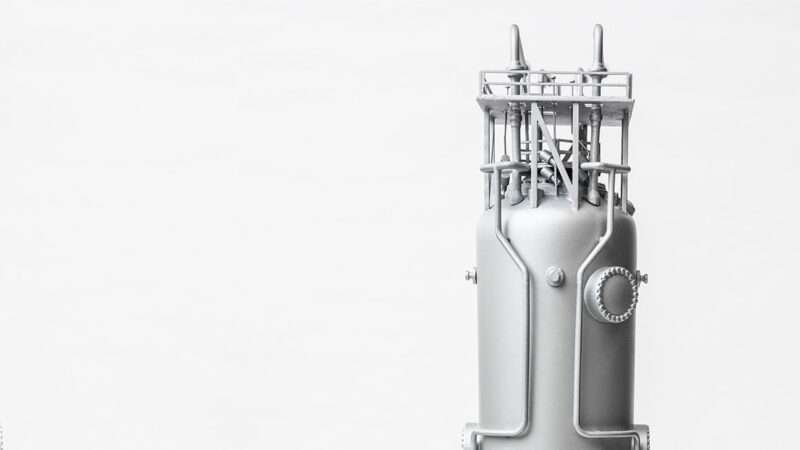
On February 14, 2022, Oregon's NuScale Power signed an agreement with the Polish mining and processing firm KGHM to deploy NuScale's innovative small modular nuclear reactors (SMRs) in Poland by 2029. At the U.N.'s Glasgow Climate Change Conference in November, NuScale contracted with a Romanian energy company to deploy its SMR technology in that country by 2028. NuScale has signed similar memoranda of understanding with electric power companies in Bulgaria, the Czech Republic, and Ukraine.
This kind of advanced energy technology will likely be powering homes and businesses in Europe before the first reactor is completed in the United States. That's because the U.S. Nuclear Regulatory Commission (NRC) is in no hurry to help.
NuScale's SMR technology did receive an NRC staff "standard design approval" in September 2020. But that happened largely because NuScale's -technology employs a smaller-scale version of the light-water reactors that the NRC -bureaucracy has been (over-)regulating for decades.
Even with that step out of the way, NuScale has been working with the NRC for years and remains stymied by bureaucratic obstacles. The company began its pre-application meetings with the NRC in 2008 and formally submitted its design certification application in 2016. NuScale is now waiting for the NRC commissioners to issue a "standard design certification," which the company hopes to receive later this year.
There are more steps after that. Nu‑ Scale has contracted with Utah Associated Municipal Power Systems (UAMPS) to build a six-module SMR project generating 462 megawatts at the Idaho National Laboratory in Idaho Falls. UAMPS must also receive NRC approval. It plans to submit, by 2024, its combined license application seeking authorization to construct and operate a nuclear power plant at the Idaho site. If approved, the plant could be completed by 2030, having survived 22 years of regulatory inertia before the first electron reaches the first customer.
This is how the process plays out for a nuclear reactor design that the NRC already knows how to regulate. NuScale's innovation is that the reactor modules are much smaller (77 megawatts) than -traditional reactors (around 1,000 megawatts). The modules are assembled at the factory, shipped by truck, and slotted together on-site in a below-grade water-filled reactor pool.
When it comes to truly novel nuclear technology, the NRC is even stodgier. In January, it rejected California-based Oklo Power's application to build and operate the company's Aurora compact fast -reactor in Idaho. Oklo Power ran into the NRC roadblock largely because its sodium-cooled fast reactor technology has never previously been evaluated and approved by the agency's bureaucrats. Its microreactor would generate just 1.5 megawatts of electricity, fueled essentially by nuclear waste.
Oklo foresees selling its reactors to utility companies, industrial sites, large companies, and college and university campuses. Assembled at a factory, its Aurora reactors will generate power for 20 years without having to refuel and won't require any human operators. Despite its setback with the NRC, the company still plans to have an operating Aurora reactor at the Idaho site by 2025.
Under the Nuclear Energy Innovation and Modernization Act of 2019, the NRC is supposed to promulgate a streamlined framework for evaluating and approving new commercial advanced nuclear reactor licenses by December 31, 2027. "The rulemaking will not be finalized by the time many leading advanced reactor vendors, such as TerraPower, X-energy, Westinghouse, and others, are set to file their NRC license applications," observed a December 2021 report from the Nuclear Innovation Alliance, a pro-nuclear nonprofit think tank.
In a February 2022 report, the pro-renewables Institute for Energy Economics and Financial Analysis described the NuScale/UAMPS collaboration as "too late, too expensive, too risky and too uncertain." While the report cited data showing significant construction delays for large plants, NuScale's factory-built SMRs aim to avoid those problems. The report did acknowledge that "delays experienced during NuScale's NRC licensing process will push the SMR's in-service date even further into the future."
The same can be said for other advanced reactor designs wrapped in the NRC's red tape.
At the NRC's stately pace of regulatory reform, the first innovative nuclear reactors designed by American companies may well begin operation in Eastern Europe before they get built in Idaho.
The post America's Nuclear Reluctance appeared first on Reason.com.







